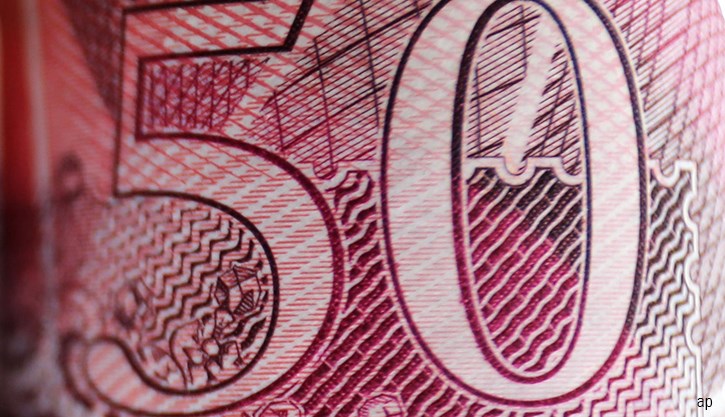
A market collapse always reminds investors of the importance of holding cash in your portfolio.
But this shouldn't be something to consider only at times of crisis; cash is always useful to have to tide you over in difficult times. The traditional advice is to hold three to six months salary in cash – but Morningstar’s Christine Benz says this one-size-fits all approach isn’t always helpful: “If you're a contractor, earn a high income, are the sole earner in your household, or work in a more specialised career path (or all of the above), you should target a year's worth of cash as an ongoing cushion,” she suggests.
The only problem with cash is that interest rates are at record lows – the Bank of England recently cut rates to a record low of 0.1% in an emergency response to the coronavirus crisis, the second rate cut this month. Since the financial crisis, savers have by and large not been able to earn enough interest to match the rise in the cost of living. But banks and building societies have responded with some competitive offers in excess of the base rate and with inflation is falling sharply now as oil plummets. The Consumer Price Index rose by at 1.7% in February, according to the ONS, while the best cash Isa pays 1.3%.
Where are the Best Cash Isa Rates?
Currently you can pay £20,000 into your Isa and invest the lot in cash or split it across any other type of Isas. But remember, you can only open one Cash Isa with a single provider each tax year - although transfers from previous tax years are allowed.
Why take out a Cash Isa in the first place? Any interest earned within the Isa is tax free and this is in addition to your personal savings allowance, which is £1,000 for basic rate taxpayers and £500 for those in the higher tax bands.
Some Cash Isas are "flexible" in that they allow you to make withdrawals without that affecting your overall allowance. In other instances, if you withdraw money you have saved that year it is still counted towards your annual allowance.
With equity markets falling in recent weeks, it's worth remembering that one of the most attractive benefits of a cash Isa is that your money is protected. Most providers are signed up to the Financial Services Compensation Scheme, which protects up to £85,000 of your savings in the event the provider goes bust - you should always check this before opening an account.
Best Buys are Fixed Rate
Below are the current best cash Isas on the market, as ranked by MoneySaving Expert.
These are the best easy-access accounts - those which allow you to access your money whenever you want, without notice. The top payer is currently Virgin Money at 1.31% although Helen Saxon, banking editor at MoneySavingExpert.com, points out: "It’s not truly easy access as it only lets you withdraw your cash two times per year."
If you’re looking for an account that you can dip in to whenever you want, the top paying account is currently Coventry Building Society’s 1.25% Isa. But if you want to earn more bang for your buck, you will have to willing to tie your money up for a set period in what is known as a Fixed Rated Isa.
If you are willing to lock away your cash for one you can get 1.36% for one year with Virgin Money, or 1.46% with Charter Savings Bank if you tie up your money for two years. Those who know they won't need to access their savings for five years can earn interest of 1.6% a year with Paragon Bank.
Saxon adds: "These Fixed Rate accounts give you a guaranteed rate, but it’s harder to access your cash, as fixed Isas tend to charge an interest penalty if you do need to access your cash, usually anything from 90 days interest to a year’s interest, depending on the length of the fix you go for.”
Saxon warns that these are variable rates and can change at anytime. Indeed, many savings providers have yet to pass through the Bank of England rate cuts in March so it's worth keeping a close eye on these best buy tables in the coming weeks and months.




























